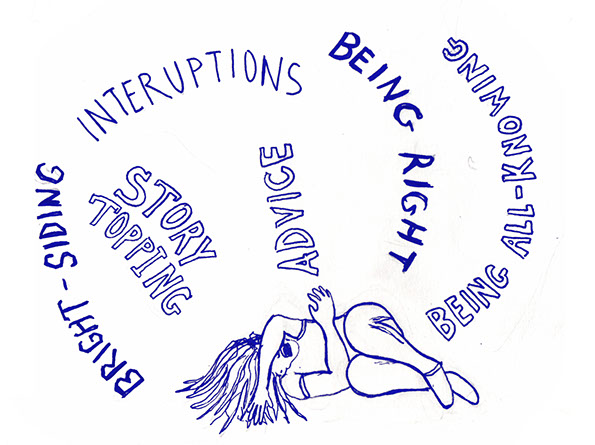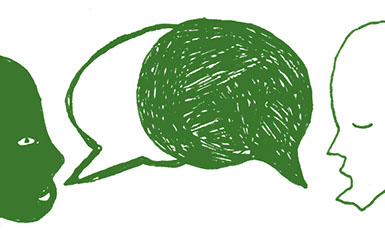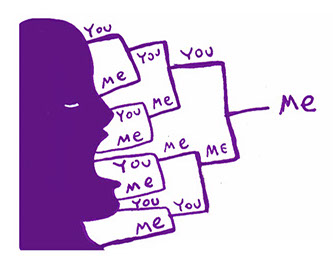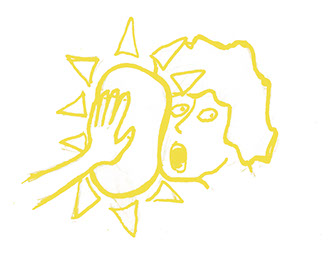
SOMETIMES WE WIELD too great of a gravitational pull in conversations, always drawing the conversation back into our orbit, always snatching our Other’s words and using them as fuel for our own stories. Thus, our side of the bridge becomes weighted down by our monologue. These are common ways in which our connection is strained under the force of our gravity, which often communicates to our Other that we do not value their story:

Interrupting – Sometimes we can’t help it, sometimes a comment forms in us with volcanic energy and erupts all over the conversation. We can do some repair work to our bridge quickly by acknowledging our interruption and offering the floor back to our Other.
Story-topping – We may catch ourselves responding that our day was worse, our experience crazier, or the view from our side of the canyon more majestic. This may shift the intention of our conversations to competition rather than connection. Of course, sharing our stories is a key part of relating, yet when our desire to impress others, to prove or to brag, masks itself in the story we respond with, then we are seeking admiration not connection. It goes a long way to first acknowledge how our Other experienced their story before sharing our own.

Being Right – Notice how often you become possessed by a determination that your Other must agree with you. Rather than listen for our Other's experience we start listening as if we are in a debate, searching for holes in their argument, throttling them with our opinion, pushing them more when they resist. In a world where each one of us has a unique point of view, it is often futile to demand that we all agree. In most cases our desire to be right only serves to push our Other off the bridge and back to their ledge. This makes conversation about winning rather than connecting.
Being All-Knowing – When we explain information to people it may suggest to them that we believe them to be ignorant, especially when we do so regularly and without being asked for our expertise. Generally, this feels insulting to those around us and usually serves your ego more than your connection. Your Other may be polite and listen, but they will endure you like a textbook they are forced to read, rather than a novel they are meaningfully engaged in.
Advising – Sometimes we want to be helpful, to offer our Other advice, to guide them, yet every brick of guidance we lay down is kicked from our bridge into the abyss. Advice-giving is often an attempt to be right or all-knowing. Unfortunately, this usually backfires because our Other is seeking empathy and connection rather than information, and we appear to them as arrogant and uncaring. If we ask our Other if they would like to hear our thoughts on how they might handle their circumstances, then they have the choice to give us the open floor, yet we must be willing to hear them say no, and to allow them to make their own decisions in the end.


Bright-Siding – Living life means experiencing bruises and injustice. While optimism and a positive attitude can do wonders, we still need to experience our struggles in order to pass through them. Always encouraging our Others to see the “bright side” may not acknowledge the painful reality that they are experiencing. On the other hand, the connection that comes from paying mind to your Other’s difficult feelings will help them to cope with stress and heal from trauma.